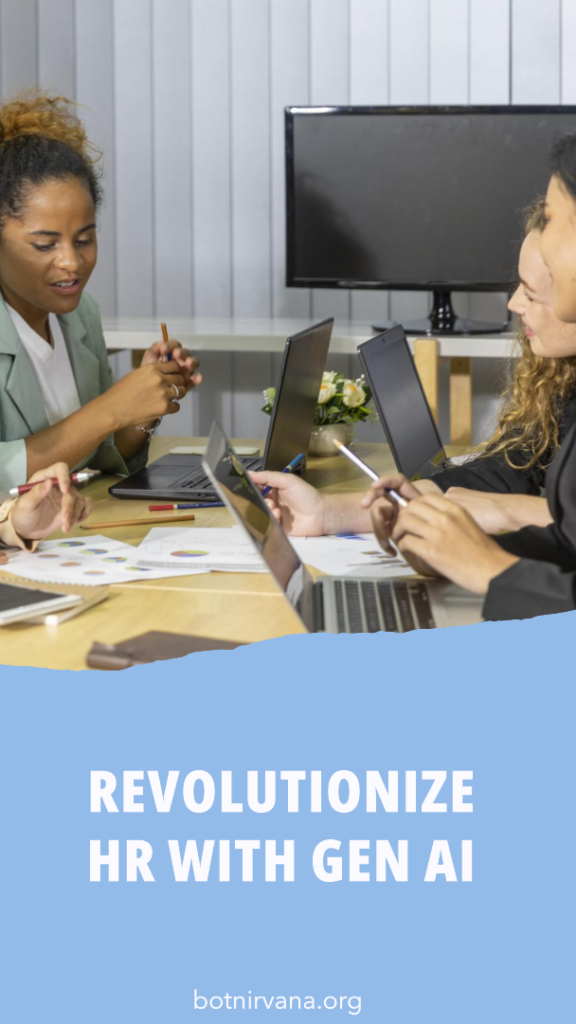The integration of artificial intelligence (AI) has the potential to revolutionize human resource management by combining data analytics, machine learning, and automation to enhance efficiency and outcomes. As AI evolves from automation to augmentation, organizations are exploring how AI tools can elevate the HR experience for employees and job seekers. Beyond time-saving benefits, AI offers real-time information, valuable insights, and personalized recommendations. This marks just the beginning of AI’s impact on human resource practices.
HR departments will be directly affected by this change, as businesses aim to fill positions that involve enhanced tasks and employees search for new job opportunities due to evolving job roles. The integration of AI in HR technology can support HR teams in adapting to this new environment. The evolution of AI tools is moving beyond just improving efficiency, now offering innovative solutions that allow team members to focus on strategic HR thinking while maintaining a human element.
How HR departments are using AI
The utilization of artificial intelligence (AI) in human resources (HR) involves the application of machine learning (ML), natural language processing (NLP), and other AI technologies to automate HR tasks and aid in decision-making processes. This approach promotes a data-driven method for talent acquisition, employee development, and retention with a focus on reducing biases and enhancing the experiences of job seekers and employees. AI tools offer a wide array of benefits for HR leaders, including streamlining: – Employee record management – Recruitment and hiring procedures – Payroll management – Performance evaluations – Benefits administration – Onboarding processes – And providing HR support or service assistance Today, organizations have the opportunity to leverage AI within HR functions and operations to support decision-making, simplify interactions with HR for employees, save time for making improved hiring decisions, and invest in enhancing employee satisfaction and retention.
Possible gen AI Use cases in HR.
New Hire Onboarding Plan Creation: In this AI use case, ChatGPT or GPT is employed to develop a comprehensive onboarding plan for new hires, incorporating the SMART framework. This plan facilitates a smooth transition into their roles by setting clear goals aligned with measurable metrics for tracking progress.
Employee Training and Compliance: Generative AI can transform HR training by automatically generating quizzes and turning existing content into interactive teaching assistants.
Employee onboarding: With Intelligent Automation, you can dramatically compress the onboarding processes. It helps reduce the time taken for key Onboarding activities by more than 80% while increasing the accuracy of data entry.
Employee Wellbeing and Retention: Generative AI offers valuable insights for HR teams by analyzing survey data, town hall discussions, and other listening methods to enhance employee retention, well-being, and engagement.
Background Checks: RPA enables you to automatically access comprehensive information about employees and individuals. Feel confident about the accuracy of the information being delivered for candidate and applicant screening.
Benefits of AI in HR
Enhanced employee support: AI can help teams gain insights into employees to enhance job satisfaction and performance, addressing burnout challenges identified in a 2022 global survey by the McKinsey Health Institute.
Increased efficiency: Automation and generative AI tools can save time for HR teams by handling routine tasks and providing valuable data sets for process review and decision-making improvement.
Improve candidate experiences: AI can assist managers in saving time and attracting top talent by creating personalized messages sent to each candidate, fostering engagement and facilitating progress in the hiring process.
Challenges of AI in HR
Artificial Intelligence (AI) is an innovative technology that presents various challenges and considerations to bear in mind:
- Skill Development: AI and automation have the potential to replace certain tasks traditionally carried out by humans, affecting the roles of employees. Address this issue proactively by devising a plan to enhance employees’ skills and restructure job positions to support those facing changes.
- Employee Privacy: Using AI to streamline operations and assess performance may lead to privacy concerns. It is crucial to prioritize employee privacy by integrating it into a data management strategy before implementing AI systems for data collection and analysis. Ensure that employees are informed about the data gathered and utilized by AI systems. Transparency in creating or utilizing AI systems is a fundamental step in addressing privacy apprehensions.
- Smooth Implementation: Organizations should be ready to adapt AI models and refine processes continuously. Initial implementations may result in suboptimal employee experiences, necessitating adjustments. Companies should be flexible and ready to make changes as required.
- Cybersecurity: AI is vulnerable to cyberattacks, especially during the training phase when Machine Learning (ML) algorithms are developed. Data poisoning attacks involve introducing malicious code or information into training datasets, which can infect numerous ML model runs and potentially compromise the company’s network. Business leaders must collaborate with IT and Security Operation Centers (SOCs) to establish comprehensive plans for ensuring the security of AI projects throughout their lifecycle.
Frequently Asked Questions (FAQs) – AI in Human Resources
1. What is the significance of artificial intelligence (AI) in human resources (HR)?
The integration of AI in HR brings automation, efficiency, and data-driven insights to various HR functions such as talent acquisition, recruitment, employee experience, and performance management.
2. How can generative AI benefit HR professionals?
Generative AI can assist HR professionals in creating personalized employee experiences, optimizing recruitment processes, and streamlining learning and development initiatives within organizations.
3. What are some common use cases of implementing AI tools in HR teams?
AI tools can be utilized by HR teams for automating repetitive tasks, enhancing talent acquisition strategies, predicting employee performance, and improving HR processes through data analytics.
4. How does artificial intelligence impact talent acquisition and recruitment processes?
AI technologies enable quicker and more accurate candidate sourcing, screening, and matching, ultimately enhancing the efficiency and effectiveness of talent acquisition and recruitment processes.
5. What role can AI-powered HR play in shaping the future of the HR industry?
AI-powered HR solutions have the potential to revolutionize HR operations, redefine HR roles, and optimize HR processes experience and talent management.
